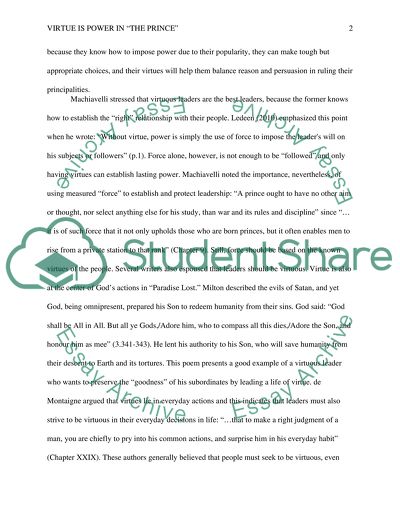Cite this document
(“Virtue is a Power in The Prince Essay Example | Topics and Well Written Essays - 1750 words”, n.d.)
Virtue is a Power in The Prince Essay Example | Topics and Well Written Essays - 1750 words. Retrieved from https://studentshare.org/literature/1431294-virtue-is-a-power-in-the-prince
Virtue is a Power in The Prince Essay Example | Topics and Well Written Essays - 1750 words. Retrieved from https://studentshare.org/literature/1431294-virtue-is-a-power-in-the-prince
(Virtue Is a Power in The Prince Essay Example | Topics and Well Written Essays - 1750 Words)
Virtue Is a Power in The Prince Essay Example | Topics and Well Written Essays - 1750 Words. https://studentshare.org/literature/1431294-virtue-is-a-power-in-the-prince.
Virtue Is a Power in The Prince Essay Example | Topics and Well Written Essays - 1750 Words. https://studentshare.org/literature/1431294-virtue-is-a-power-in-the-prince.
“Virtue Is a Power in The Prince Essay Example | Topics and Well Written Essays - 1750 Words”, n.d. https://studentshare.org/literature/1431294-virtue-is-a-power-in-the-prince.


